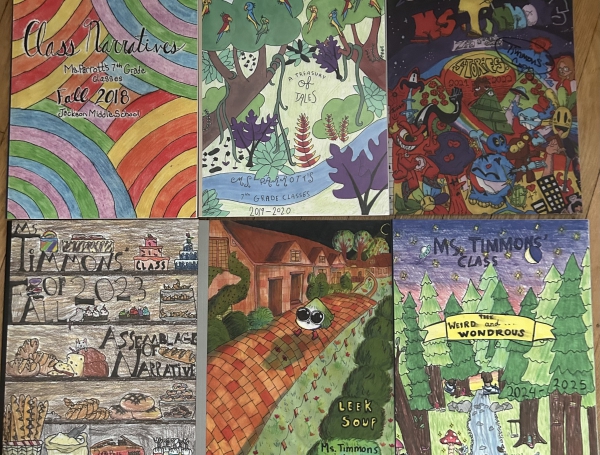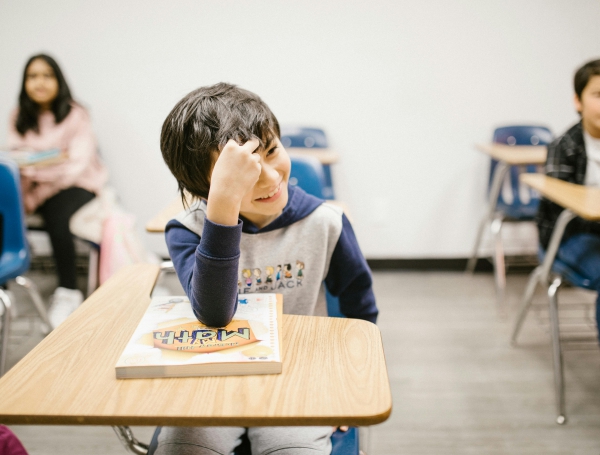

Why We Need to Discuss Controversial Issues in the Classroom
October 19, 2017
Our students may not watch the news with the same kind of habitual regularity as their parents (or our parents) did, but young people are often very aware of current events, in the country, in their community, and in the world. And, more and more frequently, students are able to access news information on their own, thanks to the increase of information available online and the increase of young people who have access to the internet. Because of this, teachers have a greater responsibility than ever before to discuss controversial topics in the classroom.
It can be uncomfortable to bring these issues up, but there’s no question that they’re on the minds of our kids. At the beginning of the year, I asked my freshman students to draw a “personal map,” to tell me something about themselves and to begin to build a community in the classroom. As I looked through them, I noticed that under “dislikes,” many students had listed things like, “the end of DACA,” “racism,” “intolerance,” and “white supremacy.” Similarly, when I showed a video clip about the garment industry in Cambodia, where garment workers were attacked by Cambodian police, students in the room quickly took sides, some defending the Cambodian police, and others accusing the Cambodian police of unprovoked attacks. Even though the clash between police and civilians had happened in a completely different country, and had happened over an issue of workers’ rights, not issues of race, students brought their own views about police brutality in the United States into their evaluation of this issue.
While it can be tempting to veer away from controversial issues in order to maintain a calm and orderly classroom, I’d argue that avoiding issues like this only leaves students without the resources to discuss controversy and without support in learning how to expand their points of view. By making space in your classroom to discuss controversial topics, you can demonstrate how to maintain an open mind, how to listen to opposing viewpoints, and how to differentiate between different opinions and hurtful or exclusionary attitudes.
No matter what age or subject you teach, there are ways to facilitate and support discussion of controversial topics in your classroom.
Here are some things that I’ve used that have helped me broach these issues with my own students:
- Always be clear with students that you are not there to tell them what to think, but that you want them to be open to many points of view. I use this frequently when touching on issues that may conflict with students’ religious beliefs.
- Keep yourself educated on different viewpoints. If I’m going to bring up a controversial topic in my class, I try to make sure I already know a lot about all sides of the issue, including sides that I might personally disagree with.
- Teach your students the difference between facts and opinions. Because I teach social studies, I make space in my planning to explicitly teach students how to do critical, evaluative research. Even if you don’t have room in your curriculum for this, helping students to distinguish between fact and opinion can help them make better, more informed, and less personal arguments when discussing hot-button topics.
- Establish a community of mutual respect. Maintaining strong and effective classroom management is key. Even if your students already know your expectations about respect and cooperation, reminding them of rules before engaging in hard conversations is essential. Additionally, be clear about what the consequences will be for students who do not demonstrate respect, and follow through if students do not maintain cordial and respectful attitudes towards their peers.
As teachers, we are uniquely poised to help our students learn to be good listeners and thoughtful citizens--but we must be intentional.
I encourage you to think of the classroom as a safe container to help your students to learn how to discuss controversial issues with respect and take this respect into the world in an actionable way.
I’d love to hear what your ideas are for intentionally discussing controversial issues in the classroom. What has worked for you?
Interested in this topic? Check out our Featured Course in October:
BEYOND DIVISIVENESS: Teaching Students to Respectfully Discuss Critical Social Issues
 Article by Alison McCartan, a regular contributor to The Heritage Institute's Blog, What Works: Teaching at Its Best.
Article by Alison McCartan, a regular contributor to The Heritage Institute's Blog, What Works: Teaching at Its Best.
Alison McCartan is a high school teacher in the South Puget Sound region of Washington State. She has taught English and history in high schools across the country, and when she's not orchestrating re-enactments of the Industrial Revolution in class, she can usually be found with a cup of tea, her cat, and a book.




